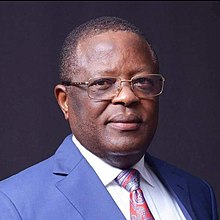By Chimezie Godfrey
The Permanent Secretary of the Federal Ministry of Science, Technology and Innovation, Mrs Monilola Udoh has said that Nigeria has the 9th largest proven natural gas reserves in the world with approximately 200 trillion cubic feet, and despite the largest in Africa, only 25 percent of those reserves are currently being developed.
Mrs Monilola said this at the training workshop on the Implementation of the National Policy on Methanol Fuel Production Technology Strategy Using Dassaults Systems Solid Work Technology today in Abuja.
The Permanent secretary also said that oil and gas industry is the backbone of the Nigerian economy, but with shift towards renewable and clean energy resources, the country’s economy can be diversified.
The Methanol she said is a clean-burning fuel that is gaining traction globally as a viable alternative to fossil fuels in the country, adding that the country need to explore alternative energy resources and methanol fuel production will be an excellent option.
According to Mrs Udoh, FMSTI is collaborating with Messers Coscharis Technologies Limited in training the Staff on the use of Advanced Manufacturing Technologies Software and solid works solution to drive projects and programs in the Ministry.
Solid work is Computer Aided Design (CAD) software that enables engineers to create 3D models of products, parts and coupling of machines which is widely used in the manufacturing industries to design and develop new products across sectors.
To this end, the Permanent Secretary emphasised that one of the mandates of the Ministry is to necessitate the need for the training of staff for effective implementation of projects and programmes.
She therefore, enjoined for optimal contribution by all participants during the training.
Earlier, the Director Environmental Sciences and Technology Department, Dr. Peter Ekweozor said that the Methanol Fuel Policy is one of the key mandates of the ministry to drive socio-economic development of Nigeria.
He stated that the efforts of the ministry is to ensure that the policy add value to our natural materials, which will facilitate the advancement of technologies, necessary for job creation, serve as source of raw materials for our manufacturing industries, generate cleaner electricity and cut down global warming.




